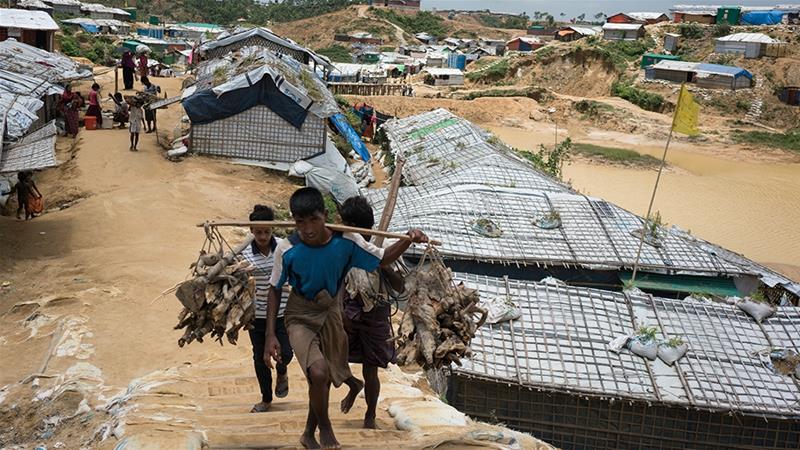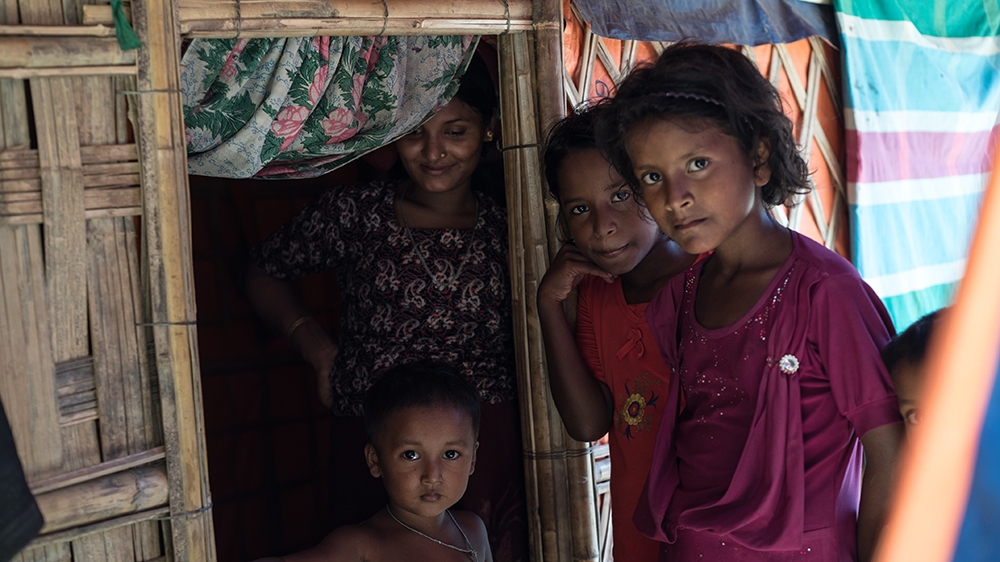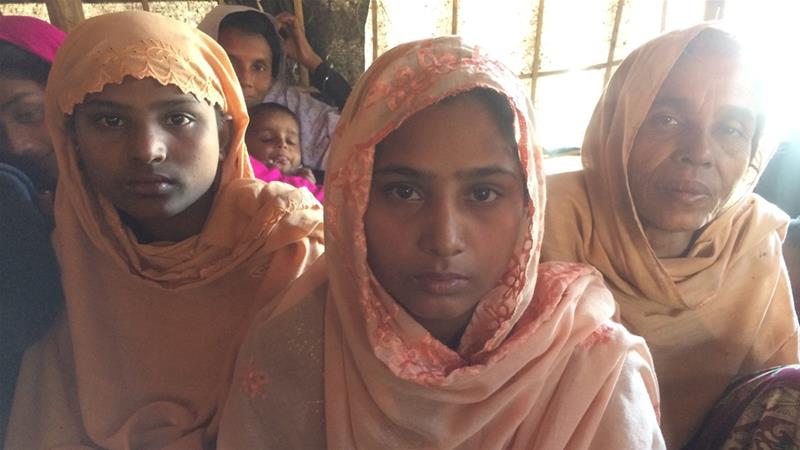UN report calls for genocide charges against Myanmar officials Independent fact-finding mission says crimes against Rohingya and other minorities include sexual violence and murder.

More than 700,000 Rohingya people have fled Myanmar since August 2017 [Sorin Furcoi/Al Jazeera]
Myanmar’s senior military officials must be prosecuted for genocide and war crimes against the Rohingya and other ethnic minorities, a UN fact-finding mission has urged.
The mission, which was established by the UN Human Rights Council in March 2017, found that Myanmar’s armed forces had taken actions that “undoubtedly amount to the gravest crimes under international law”.
Speaking in Geneva on Monday, Marzuki Darusman, the chairman of the investigative mission said that his researchers had amassed a vast amount of primary information, based on 875 interviews with witnesses and victims, satellite imagery, and verified photos and videos.
Marzuki said the victim accounts were “amongst the most shocking human rights violations” he had come across and that they would “leave a mark on all of us for the rest of our lives”.
|
|
He described Myanmar’s military as having shown a “flagrant disregard for lives” and displayed “extreme levels of brutality”.
“The Rohingya are in a continuing situation of severe systemic and institutionalised oppression from birth to death,” Marzuki said.
The UN report said that military generals, including Commander-in-Chief Min Aung Hlaing, must face investigation and prosecution for genocide in north Rakhine State, as well as crimes against humanity and other war crimes in Kachin, Shan and Rakhine states.
The report singles out Myanmar’s military, which is known as the Tatmadaw, but adds that other Myanmar security agencies were also involved in the abuses.
“Military necessity would never justify killing indiscriminately, gang-raping women, assaulting children, and burning entire villages,” the report said.
“The Tatmadaw’s tactics are consistently and grossly disproportionate to actual security threats, especially in Rakhine State, but also in northern Myanmar.
 |
| A Rohingya family in Balukhali camp [Sorin Furcoi/Al Jazeera] |
“The Tatmadaw’s contempt for human life, integrity and freedom, and for international law generally, should be a cause of concern for the entire population.”
Myanmar’s military is accused of involvement in murder, false imprisonment, torture, sexual slavery, and rape.
In Rakhine State, there was evidence of extermination and deportation, the report added.
“The crimes in Rakhine State, and the manner in which they were perpetrated, are similar in nature, gravity and scope to those that have allowed genocidal intent to be established in other contexts,” the mission concluded, adding there was “sufficient information” to prosecute the Tatmadaw’s chain of command.
Christopher Sidoti, a member of the investigatory committee, urged the UN Security Council and General Assembly to act on the findings of the report.
“We are convinced the international community holds the key to dismantling the destructive veil of impunity in Myanmar,” he said.
‘This is extremely significant’
Mohammed Jamjoom, Al Jazeera’s correspondent in Cox’s Bazar
“What we’ve heard in the report really lines up with witness testimonies I’ve heard here.
For most of the past year, when official bodies of governance spoke about the atrocities committed in Rakhine state, they called it ethnic cleansing.
Now there’s a very extensive UN fact-finding mission recommending that top tier military officials in Myanmar be prosecuted and investigated for genocide.
When the members of the panel in Geneva laid out their investigation, they said that they conducted 875 interviews, they talked about the constructive veil of impunity in Myanmar and they said that until that is lifted, the cycle of violence in Myanmar will continue.
They said there needs to be a mechanism by which these crimes can be prosecuted and which the cycle of violence in Myanmar can be ended.
That’s going to be very difficult, we don’t know exactly where this goes. At some point it will be presented to the UN Human Rights Council and then potentially to the UN Security Council.
But we must remember that Myanmar is not a signatory to the Rome Statute, so the International Criminal Court does not have jurisdiction.”
Criticism of Aung San Suu Kyi
Investigators compiled a list of suspects, which included Min Aung Hlaing and other military commanders.
The mission said a full list of suspects will be made available to any credible body pursuing accountability, adding that the case should be referred to the International Criminal Court, or an ad hoc criminal tribunal.
Myanmar’s civilian leadership also drew criticism for its failure to prevent the abuses.
“The State Counsellor, Daw Aung San Suu Kyi, has not used her de facto position as Head of Government, nor her moral authority, to stem or prevent the unfolding events in Rakhine State,” the report said.
The Government and the Tatmadaw have fostered a climate in which hate speech thrives, human rights violations are legitimized, and incitement to discrimination and violence facilitated.
UN REPORT
